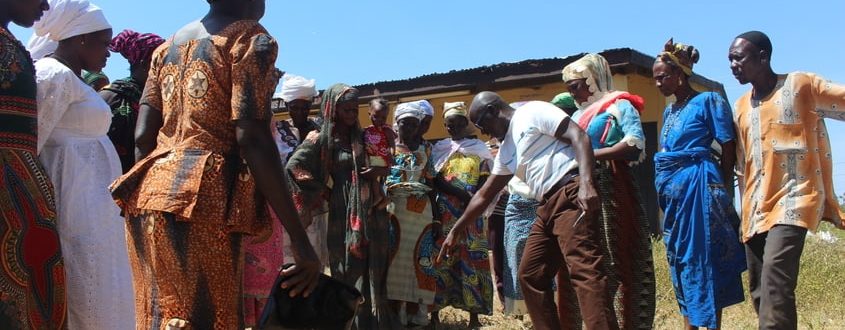Date Issued: January 22,2019 –
The Peasant Farmers Association of Ghana (PFAG) has organized a sensitization and training for women groups and youth on sustainable farming practices. The training which forms part of an Oxfam funded project in Ghana was facilitated by Dr. Kofi Boa, a farmer, sustainable agriculture advocate, soil scientist and the Director of Centre for No-Till Agriculture (CNTA).
The beneficiary farmers were selected from farming communities in and around Saboba and Chereponi districts in the Northern Region and Gwollu and Tumu in the Upper West region.
The participating farmers were educated on the principles of Agroecology such as mulching, mixed cropping, crop rotation, slashing among others on their farms. Other practices such as selecting a good site for production, good planting materials, planting and intercropping, controlling weed, controlling major pests and diseases, pruning, managing soil fertility, water management and reducing post-harvest losses were also exposed to the farmers.
The concept of Agroecology is an integrated approach that simultaneously applies ecological and social concepts and principles to the design and management of food and agricultural systems. It seeks to optimize the interactions between plants, animals, humans and the environment while taking into consideration the social aspects that need to be addressed for a sustainable and fair food system.
Most farmers are used to bush burning as a way of preparing their land for farming, however, this method of land preparation according to Dr. Boa, kills the organisms that help enrich the soil. He therefore advised farmers to mulch the land by cutting the grass. This allows for the cut grass to serve as cover crop and fertilizer at the same time. “Instead of ploughing just cut the weed the grass and leave it the ground to boost soil fertility,” he admonished.
He explained that, chemical fertilizer has a lot of stringent conditions that must be followed before application is done and getting it wrong can cause a lot of damage to land.
Some farmers expressed their satisfaction for the knowledge gained and hinted that it will form the basis of engaging the government to address some of these concerns expressed. “I am very happy to learn that I can now go around a collect cow dung to serve as fertilizer on my farm. I really don’t need chemical fertilizer which I don’t get anyway under the Planting for Food & Jobs,” says Nafatu Amadu, a 40-year-old beans and groundnut farmer from Chereponi.


leave a comment
You must be logged in to post a comment.